The MENTOR Initiative 20th Anniversary
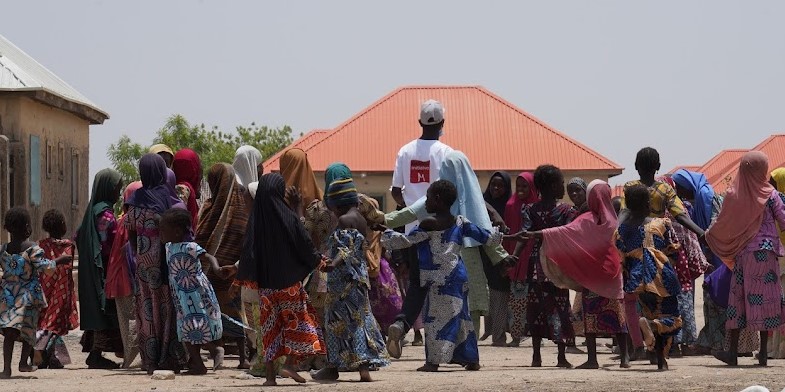
20 years ago today, Richard Allan founded The MENTOR Initiative to reduce death and suffering from tropical diseases in humanitarian crises. MENTOR was established to deliver emergency healthcare quickly and effectively in the most dire, complex situations drawing from Richard’s specialist knowledge and disease control experience. The first programme was researching the efficacy of Insecticide […]
Second phase of emergency response in Mozambique

(13 July 2022) Work is underway in Cabo Delgado Province in the second phase of MENTOR’s response to the humanitarian emergency caused by violence and insecurity in Northern Mozambique. The programme, which began in 2021 and is funded by BHA-USAID, aims to ensure access to life-saving disease prevention and health services to conflict and disaster-affected […]
“Disease control in countries with highest burden more important than ever” says MENTOR CEO
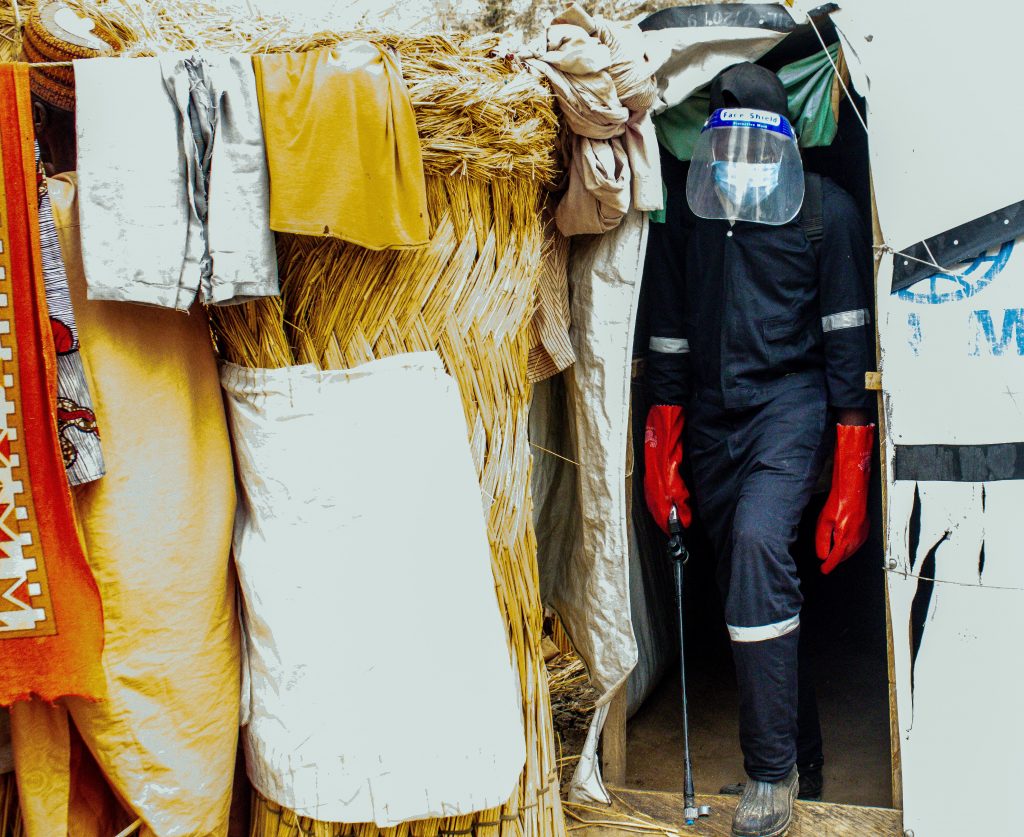
Today (23 June 2022) at the Kigali Summit on Malaria and Neglected Tropical Diseases, we will hear about the progress been made to overcome these diseases that cause death and suffering to a large proportion of the world’s population. But we still need to ramp up the critical work to tackle malaria and NTDs in […]
Ukraine Emergency Response update May 2022
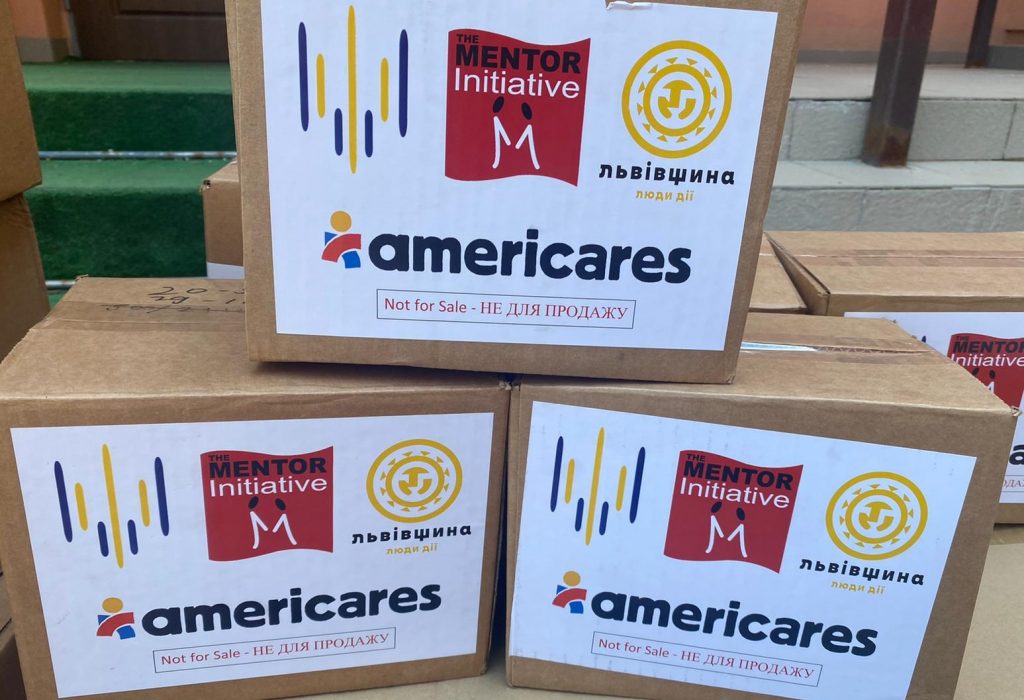
For nearly 20 years The MENTOR Initiative has responded to global humanitarian emergencies by delivering evidence-based disease control to saves lives and reduce suffering. Now, MENTOR is focusing its unique skillset to lead and manage the procurement, supply and distribution of medical supplies and medicines to assist with the conflict in Ukraine. A team of […]
Ukraine Emergency Response: March 2022
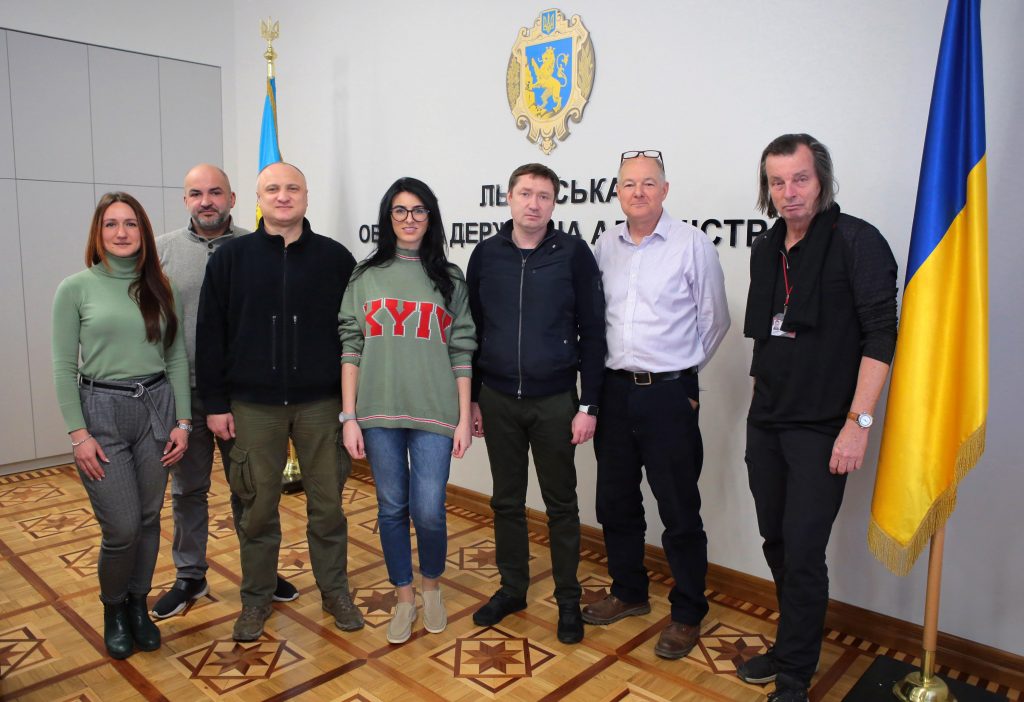
Since the start of the conflict in Ukraine in February 2022, more than 3.55 million people have crossed into neighbouring countries[1], with an additional 2 million people internally displaced within Ukraine. This is, according to the UN High Commissioner for Refugees, Filippo Grandi, the fastest growing refugee crisis in Europe since World War II[2]. In […]
Reporting the Impact of Indoor Spraying & Education Campaign in Nigeria
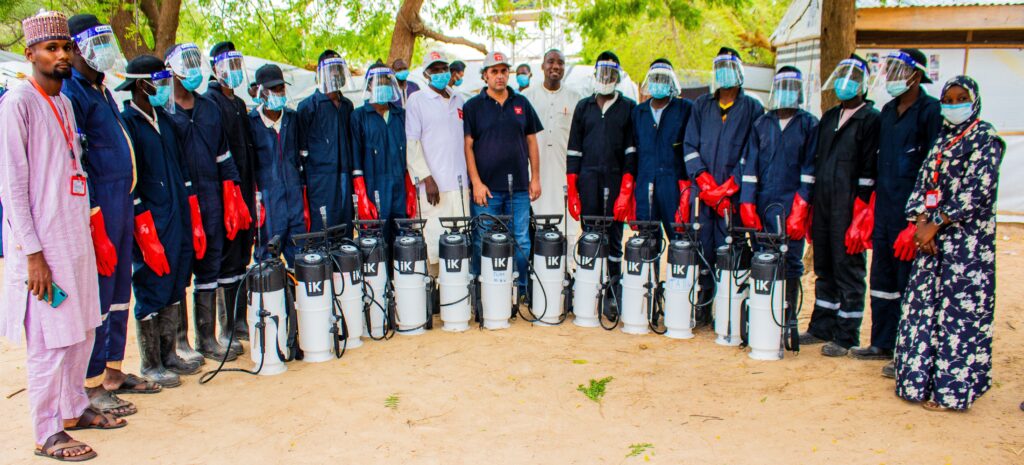
In Borno State, Nigeria, malaria is the number one cause of morbidity and mortality, with peak disease burden during and immediately following the rainy season. Reported cases of malaria in Borno State increased by almost 10% from 279,389 in 2019 to 307,175 in 2020. While endemic, it is also clear from that malaria morbidity is most significantly experienced during the rainy season from July-September in Borno State. Fresh surface water from rainfall creates breeding grounds for the anopheles malaria vector, causing these spikes in recorded malaria rates. Transmission continues to increase annually, highlighting the urgent need for intervention.
Supporting Frontline Health Workers in Nigerian Conflict Zones (with SC Johnson and Nothing But Nets)
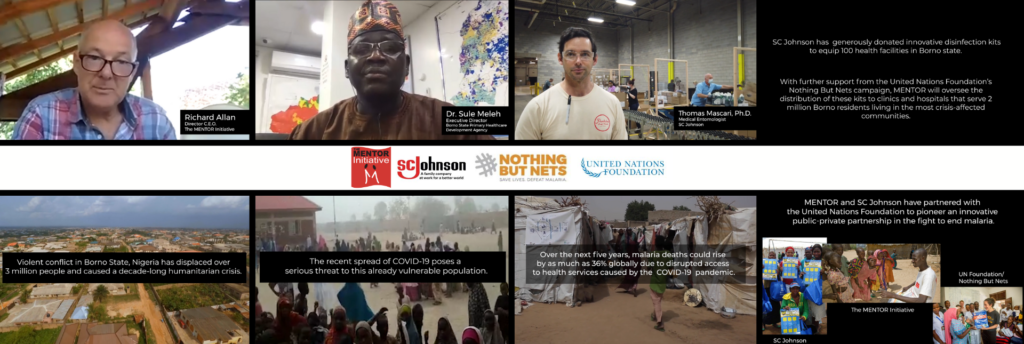
This year, World Humanitarian Day (August 19) arrives at a time when COVID-19 is surging across Africa: more than 1 million cases have been reported, despite limited testing capacity. COVID-19 is starting to spread beyond Africa’s urban areas and now poses a serious threat to humanitarian settings such as refugee settlements and war-torn communities. Health […]
Ensuring safe health facilities in conflict settings during COVID-19: Borno, Nigeria

The conflict affected and health burdened state of Borno, Nigeria, is now reporting increasing COVID-19 cases, an outbreak which will continue to aggravate an already unimaginable situation for the people in the region and threatens to hamper all efforts at recovery from the existing health crises. In order to prevent the spread of COVID-19, as […]
MENTOR IN MOZAMBIQUE UPDATE (JUNE 2019)
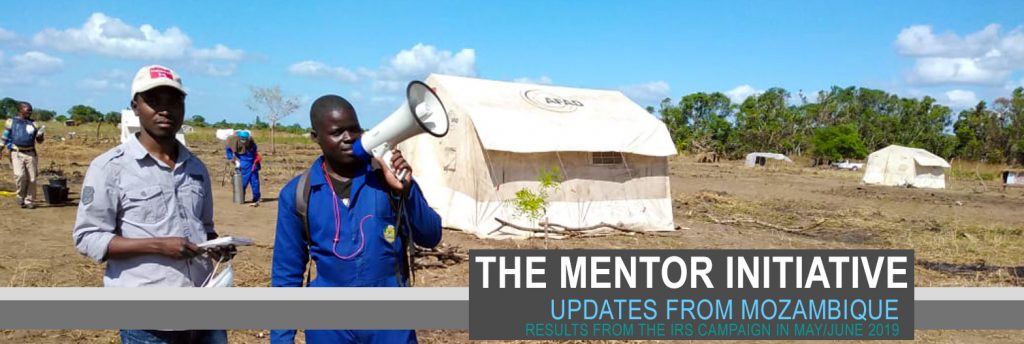
Reporting On The First Round Of IRS Campaigns in a post-Cyclone Idai Mozambique Immediately after Cyclone Idai struck Mozambique and the surrounding region in March 2019, The MENTOR Initiative mobilised their Emergency Team to start preparing for what we knew to be an incoming “Second Wave”. Our history and expertise working to reduce and prevent […]
